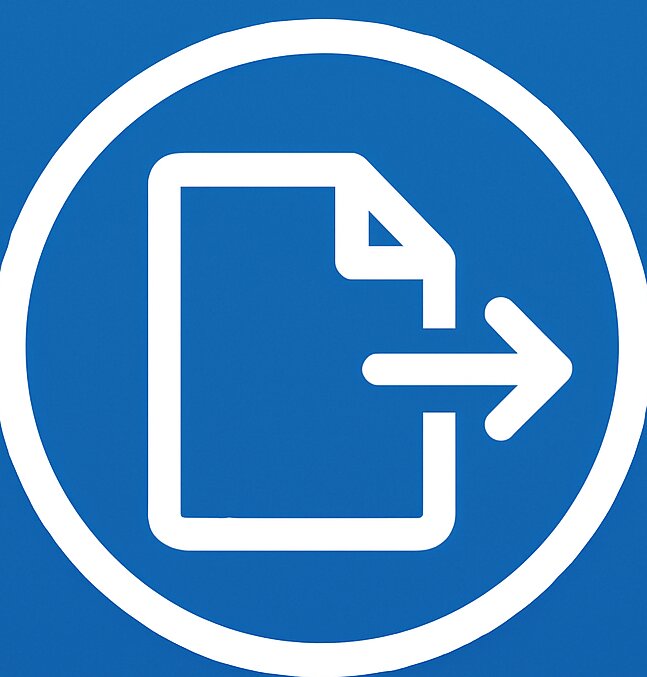Computer users need file conversions in the current digital environment more than ever before due to rapid technological advancement. Your productivity together with your overall user experience benefits significantly from the proper choice of conversion tools which handle documents, images, videos or audio files.
The selection for Desktop Software Converters tools exists as two primary choices between web-based converters and installed desktop applications. Different users have unique needs which match with either desktop software converter benefits or online converter advantages.
This essay details the distinctive features between online and desktop software converters tools to assist your choice-making process.
Understanding Online Converters
The internet hosts web-based converter tools which perform file transformations without requiring software installation and or download execution.
Users can accomplish file conversion through an efficient process by uploading their files before choosing output formats before continuing the conversion.
Pros of Online Converters
- Accessibility:
Online converters provide users with easy access to their services as a top advantage.Users benefit from these tools because they work from every internet-connected device thereby offering high convenience to people performing tasks at different locations including home-based workplaces.Users avoid compatibility problems because the service functions through an internet-based browser. - Cost-Effectiveness:
Online converters operate free of charge but sometimes provide charged premium services. This affordable character appeals to small businesses together with individuals who prefer not to spend money on expensive software solutions. - No Installation Required:
The ability to convert files through the internet removes the necessity to install programs which consequently preserves your device storage space. Online converters provide a valuable solution for people who use up their disk space or want their systems clean by eliminating additional programs.
Ease of Use:
Online converters typically present user-friendly interfaces as their main design feature for simple conversion execution. Online conversion software includes simplified operations and detailed direction which enable users with basic technical understanding to perform tasks efficiently.
Cons of Online Converters
- Internet Dependency:
Online converters experience their biggest limitation because they need active internet access for their operation. Sluggish or weak internet connection will interrupt and delay conversion which becomes bothersome for urgent projects. - Security Concerns:
The act of uploading sensitive documents to online file conversion services produces valid security problems. Many services in the market offer protection for user data but users should recognize that complete data security cannot be guaranteed. Sensitive users dealing with confidential information must face this obstacle with concern. - File Size Limitations:
Users must cope with size restrictions imposed by digital converter services during their processes. The imposed file size restriction poses a major obstacle because users need to break down their files or look for different conversion options.
Exploring Desktop Software Converters
You can find desktop software converters through computer applications which bring full conversion features to your system.These tools operate independently from the internet because they function on computers without requiring an online connection so users choose them for reliability.

Pros of Desktop Software Converters
- Offline Functionality:
Desktop software stands out due to its function of converting files even while offline. Desktop software converters prove advantageous to users at any time since they function without the need for an internet connection particularly benefiting those in areas with weak networks or those seeking uninterrupted access to their technological tools.
- Enhanced Security:
Desktop software converters ensures superior file security over the security measures supported by online converters. Files stored on your computer when you convert retain better security because no unauthorized entities can access your data. - Advanced Features:
The typical features offered by desktop software converters programs surpass what is available through online converters. This software collection suits professional users through its advanced feature sets which enable users to create detailed format configurations for their conversions. - Larger File Handling:
Desktop software converters allows users to convert large files because it maintains support for high-resolution media and extensive datasets. Users save substantial time and effort by taking advantage of this excessive file capacity compared to how fragmented online converters work.
Cons of Desktop Software Converters

- Cost:
Users must expect to buy the high-quality versions of desktop software applications. Premium features in these converters exist only in the paid versions requiring users to buy licenses. The expense of such converters creates a hurdle that tight-budgeted users need to overcome. - Installation and Updates:
Desktop software installation along with its maintenance processes tend to be difficult for users. The software requires periodic updates to perform effectively and users need these updates to access newer features. Although users find maintenance tasks frustrating since they prefer easy solutions to their problems. - Resource Usage:
Applications installed on desktop devices use both Central Processing Unit (CPU) power and Random Access Memory (RAM). Your computer system performs more slowly when you heavily use it while operating several resource-intensive software applications at once.
Making the Right Choice
What type of file converter you select depends both on the needs you currently face and your existing situations. You should choose an online converter because it provides accessibility along with cost-saving benefits and easy operability. The better option for those who need security alongside advanced functions and offline capabilities will be desktop software.
An online converter serves as an efficient solution for users who convert files occasionally. On the other hand technicians who have to process substantial amounts of data or need complex conversion parameters alongside dealing with sensitive material find desktop programs essential for their work operations.
Conclusion
Online converters and desktop software provide separate advantages and disadvantages when performing document conversions.The key factors outlined in this piece will help you make a proper converter selection to meet your needs.
The choice between desktop applications and online accessibility will boost your file conversion efficiency when you select a solution that matches your requirements.
The best converter for your needs will perfectly blend into your workflow and delivers dependable output while minimizing unnecessary effort to attain top results effectively.
Review available options while comparing advantages against disadvantages to select tools that will optimize file conversion operations at the present moment.
FAQ
Frequently Asked Questions (FAQs)
Q1: What is the greatest difference between the online converters and the desktop software converters?
A: Their difference is by how and where they do operation. Online converters operate via a web browser and it needs an internet connection whereas as for desktop software , it should be installed in your computer and you can run it without internet connection. Each one has specific advantages with regards to your needs, including speed, security, cost, and convenience.
Q2: Are online file converters free for use?
A: Other than few, majority of online converters provide free basic services. However, some restrict file sizes and/or formats and have premium versions with increased functionality such as batch conversion, increased processing speeds, or larger file support.It is best to always read the pricing page or terms of the tool before trusting the advanced features.
Q3: Do desktop converters for files offer more security than the online tools?
A: Yes, desktop converters usually offer more security in particular once confidential or private data is concerned. As there is no need to upload the files to a third-party server, in case of a data leak or hacking, there is less risk to your information. That is why desktop tools are perfect for sensitive projects.
Q4: Is technical knowledge required for me to use desktop converters?
A: Not necessarily. Many of the desktop software converters are user friendly having drag and drop features and easy menus. But some of the advanced tools are designed for the professional users and sometimes require to know something about file format, codec, or particular export settings.
Q5: Which one is more suitable to work with large files?
A: Desktop software converters is more effective in handling big files such as HD videos or bulky documents. Many online converters have file size limitation or a slow upload/download since internet is slow. Local processing of files on desktops is faster and it is more reliable.
Q6: Do I need to install anything in order to be able to use online converters?
A: Yes! That is one of their strengths. Using the internet converters, you do not need to download or install anything, everything goes through your browser. This makes them ideal for small tasks or persons who are operating from public computers or shared systems.
Q7: Are desktop file converters expensive?
A: Certain desktop tools are free or open source, whereas, the advanced ones, or the ones that are specialized usually require a one-time purchase or subscription.Nevertheless, this investment typically involves stronger features and performance and a stand-alone kind of support.
Q8: How should I make a choice between the two?
A:To make quick, casual, or random currency conversions, resort to online tools.
Desktop is better if volumes are large or privacy or professional use is the case.
Do not forget about your internet speed, volume of your system and budget when making thechoice.
